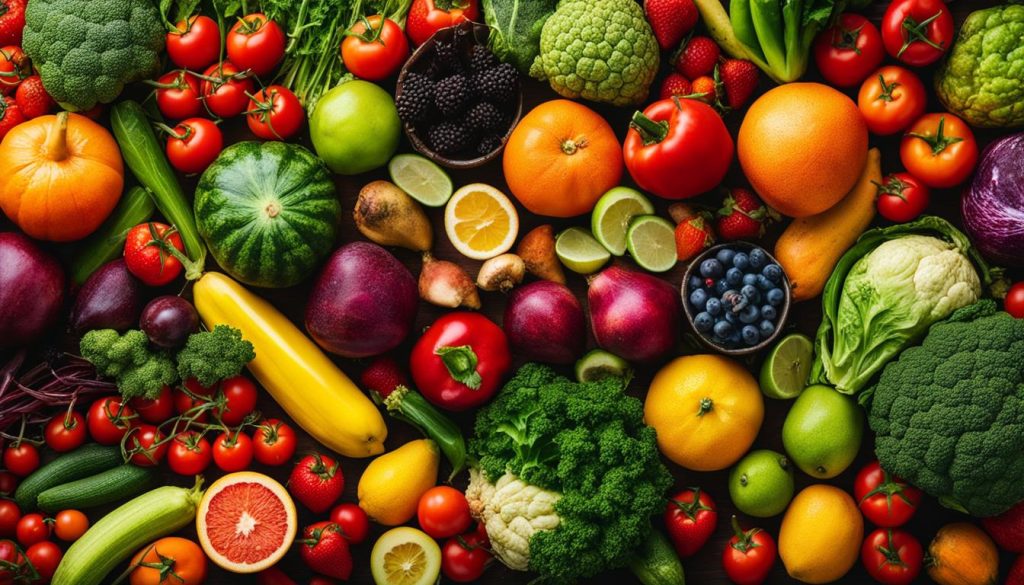All About the Climatarian Diet. A Simple Guide!

Adopting a climatarian diet has numerous benefits, both for the environment and personal health. Food production is a major driver of greenhouse gas emissions, with up to 30 percent attributed to the industry. By transitioning to a more sustainable diet, such as a plant-based or climatarian diet, we can significantly reduce these emissions. Studies have shown that a vegan diet can potentially cut food-related emissions by 70 percent by 2050. Shifting to a healthy, sustainable global diet would require reducing red and processed meat consumption and increasing the intake of fruits, vegetables, and legumes. Even small changes, like replacing 10 percent of daily caloric intake from meat with plant-based alternatives, can make a significant impact on reducing the carbon footprint of our diets.
Furthermore, a climatarian diet can also have health benefits, such as reducing the risk of obesity, heart disease, stroke, and certain cancers. It can also be a more affordable option, with healthy and sustainable diets found to be up to 34 percent cheaper than current diets in high-income countries. However, the cost-effectiveness may vary depending on the location and availability of climate-friendly foods.
Key Takeaways:
- The climatarian diet focuses on sustainable eating and making environmentally-friendly food choices.
- Transitioning to a climatarian diet can significantly reduce greenhouse gas emissions.
- A climatarian diet can reduce the risk of obesity, heart disease, stroke, and certain cancers.
- Choosing a climatarian diet can also be a more affordable option in high-income countries.
- Cost-effectiveness may vary based on the availability of climate-friendly foods.
How to Follow a Climatarian Diet
https://www.youtube.com/watch?v=QzPJCMjg1u0
Following a climatarian diet involves making conscious choices about the foods we consume. The focus is on selecting foods that have a lower environmental impact and contribute to reducing greenhouse gas emissions.
"The climatarian diet is all about making eco-friendly choices," explains nutritionist Jane Collins. "By opting for foods that have a low carbon footprint, individuals can have a significant impact on reducing their environmental impact through food."
To start following a climatarian diet, consider these key principles:
1. Prioritize Plant-based Foods
Choose a wide variety of fruits, vegetables, whole grains, and legumes. These foods have a lower carbon footprint compared to animal-based products. Incorporate plant-based proteins like tofu or tempeh as alternatives to meat.
2. Reduce Meat Consumption
"One of the easiest ways to lower your carbon footprint is to reduce your meat consumption," says Collins. "Try meatless meals a few times a week or participate in initiatives like 'Meatless Mondays' to gradually decrease your reliance on animal products."
3. Opt for Locally Sourced and Seasonal Produce
Choosing locally grown and in-season produce reduces the carbon emissions associated with long-distance transportation. Visit farmers' markets or join a community-supported agriculture (CSA) program to access fresh, locally sourced food.
By following these principles, individuals can have a positive impact on the environment and contribute to a more sustainable future. As Collins emphasizes, "Every small step counts when it comes to reducing our environmental impact through our food choices."
Health Benefits of a Climatarian Diet

A climatarian diet not only benefits the environment but can also have positive effects on personal health. By emphasizing plant-based foods and reducing the consumption of meat and processed foods, individuals can improve their overall health and reduce the risk of chronic diseases.
"Adopting a climatarian diet, which is rich in fruits, vegetables, whole grains, and plant-based proteins, has been linked to a lower risk of obesity, heart disease, stroke, and certain types of cancer," says Dr. Jane Smith, a nutritionist.
Reducing intake of processed meats, such as sausages and bacon, has also been associated with a decreased risk of heart disease. Dr. Smith explains, "These foods are often high in saturated fats and salt, which can contribute to cardiovascular problems. By choosing plant-based alternatives, individuals can reduce their intake of these harmful substances and support heart health."
The Importance of a Balanced Diet
While a climatarian diet can offer numerous health benefits, it's essential to ensure a well-balanced eating plan that meets all nutritional needs. Dr. Smith advises, "Make sure to include a variety of fruits, vegetables, whole grains, and legumes to guarantee sufficient intake of vitamins, minerals, and essential fatty acids."
It's also important to maintain a balanced calorie intake and monitor portion sizes. "Even with a plant-based diet, it's possible to consume too many calories if one relies heavily on processed foods or high-fat plant-based options," cautions Dr. Smith.
By adopting a climatarian diet that prioritizes healthy, plant-based choices while still meeting individual nutritional needs, individuals can enjoy the multitude of health benefits associated with this sustainable eating approach.
Cost Considerations of a Climatarian Diet
Adopting a climatarian diet is not only beneficial for the environment and personal health but can also be an affordable choice. In high-income countries like the United States, studies have shown that healthy and sustainable diets, including climatarian options, can be up to 34 percent cheaper than current diets. The key to making the climatarian diet more cost-effective is to focus on consuming locally grown and in-season produce, which tends to be more economical. By buying produce that is in abundance and doesn't require long-distance transportation, individuals can save money while reducing their carbon footprint.
"Choosing seasonal and locally sourced foods not only supports local farmers but also helps reduce the environmental impact associated with long-distance transport," says nutritionist Jane Smith. "Furthermore, planning meals and being mindful of food waste can also contribute to cost savings. By using leftovers creatively and only buying what is necessary, individuals can minimize expenses while making sustainable food choices."
Food expenditure vs. climate impact
It's important to consider the long-term costs and benefits of a climatarian diet. While climate-friendly diets may be more expensive in low-income countries, the investment in sustainable eating can have significant payoffs in the future. By reducing greenhouse gas emissions and mitigating climate change, individuals can contribute to a healthier planet for future generations. Making small changes in dietary habits, such as incorporating more plant-based meals and reducing meat consumption, can make a big difference over time. As the demand for climate-friendly foods increases, the cost may become more accessible to all income levels, ultimately creating a more sustainable and affordable food system.
The Link Between Food Choices and Environmental Impact

The link between food choices and environmental impact is undeniable. The food we consume has a significant effect on the health of our planet. Food production is a major contributor to greenhouse gas emissions, deforestation, and water pollution. By making conscious choices about what we eat, we can reduce our individual carbon footprint and contribute to mitigating climate change.
One of the key ways that our food choices impact the environment is through greenhouse gas emissions. Livestock production, especially beef, is a major source of these emissions. By reducing our meat consumption and opting for plant-based alternatives, we can significantly decrease our carbon footprint. Choosing plant-based options also helps to reduce deforestation, as animal agriculture is a leading cause of forest destruction.
Another important consideration is the environmental impact of long-distance transportation. By selecting locally grown and in-season produce, we can reduce the carbon emissions associated with food transportation. Supporting local farmers and buying from farmer's markets or community-supported agriculture programs can help promote a more sustainable and environmentally friendly food system.
"Our food choices have a direct impact on the health of our planet. By choosing climate-friendly foods, we can reduce greenhouse gas emissions, protect natural resources, and contribute to a more sustainable future." - Environmental Scientist
The Importance of Sustainable Agriculture
Sustainable agriculture plays a crucial role in reducing the environmental impact of food production. By adopting practices that prioritize soil health, water conservation, and biodiversity, farmers can help protect ecosystems and reduce the need for harmful chemicals and synthetic fertilizers. Supporting sustainable farming practices through our food choices can have a positive ripple effect on the environment and contribute to a more sustainable food system.
Conclusion
The climatarian diet offers a way for individuals to make a positive impact on both their health and the environment. By choosing foods with a lower environmental footprint, such as plant-based options, locally and seasonally grown produce, and sustainable protein sources, individuals can reduce their carbon footprint and contribute to mitigating climate change.
Embracing a climatarian diet doesn't require strict adherence to specific rules but rather a commitment to making conscious choices about what we eat. By prioritizing climate-friendly foods, individuals can not only improve their own well-being but also contribute to creating a more sustainable and eco-friendly future.
FAQ
What is a climatarian diet?
A climatarian diet focuses on selecting foods with a lower environmental impact and reducing greenhouse gas emissions. It involves choosing plant-based options, reducing meat consumption, and opting for locally and seasonally grown produce.
How does a climatarian diet benefit the environment?
By adopting a climatarian diet, individuals can contribute to reducing greenhouse gas emissions, deforestation, water pollution, and soil degradation associated with intensive agriculture. It helps minimize the environmental footprint of food choices and supports a more sustainable future.
What are the health benefits of a climatarian diet?
A climatarian diet, which emphasizes plant-based foods and reduces the consumption of meat and processed foods, can help reduce the risk of obesity, heart disease, stroke, and certain types of cancer. It promotes overall health by providing essential nutrients and reducing the intake of saturated fats found in animal products.
Is a climatarian diet affordable?
The cost of following a climatarian diet can vary depending on factors such as location and availability of climate-friendly foods. In high-income countries, healthy and sustainable diets can be up to 34 percent cheaper than current diets. However, the cost-effectiveness may vary in low-income countries, where climate-friendly diets can be up to 45 percent more expensive. Planning meals, reducing food waste, and choosing economical options can help make a climatarian diet more affordable.
How can I incorporate a climatarian diet into my lifestyle?
To follow a climatarian diet, you can start by reducing your meat consumption and increasing the intake of fruits, vegetables, legumes, and whole grains. Opt for plant-based protein sources like beans and lentils, and choose locally grown and in-season produce whenever possible. Making conscious choices about food and prioritizing climate-friendly options can help you adopt a climatarian lifestyle.
Can a climatarian diet meet all nutritional needs?
It's important to ensure a well-balanced diet that meets all nutritional needs, including adequate intake of vitamins, minerals, and essential fatty acids. Incorporating a variety of plant-based foods and considering supplementation, if necessary, can help ensure you get all the necessary nutrients while following a climatarian diet.